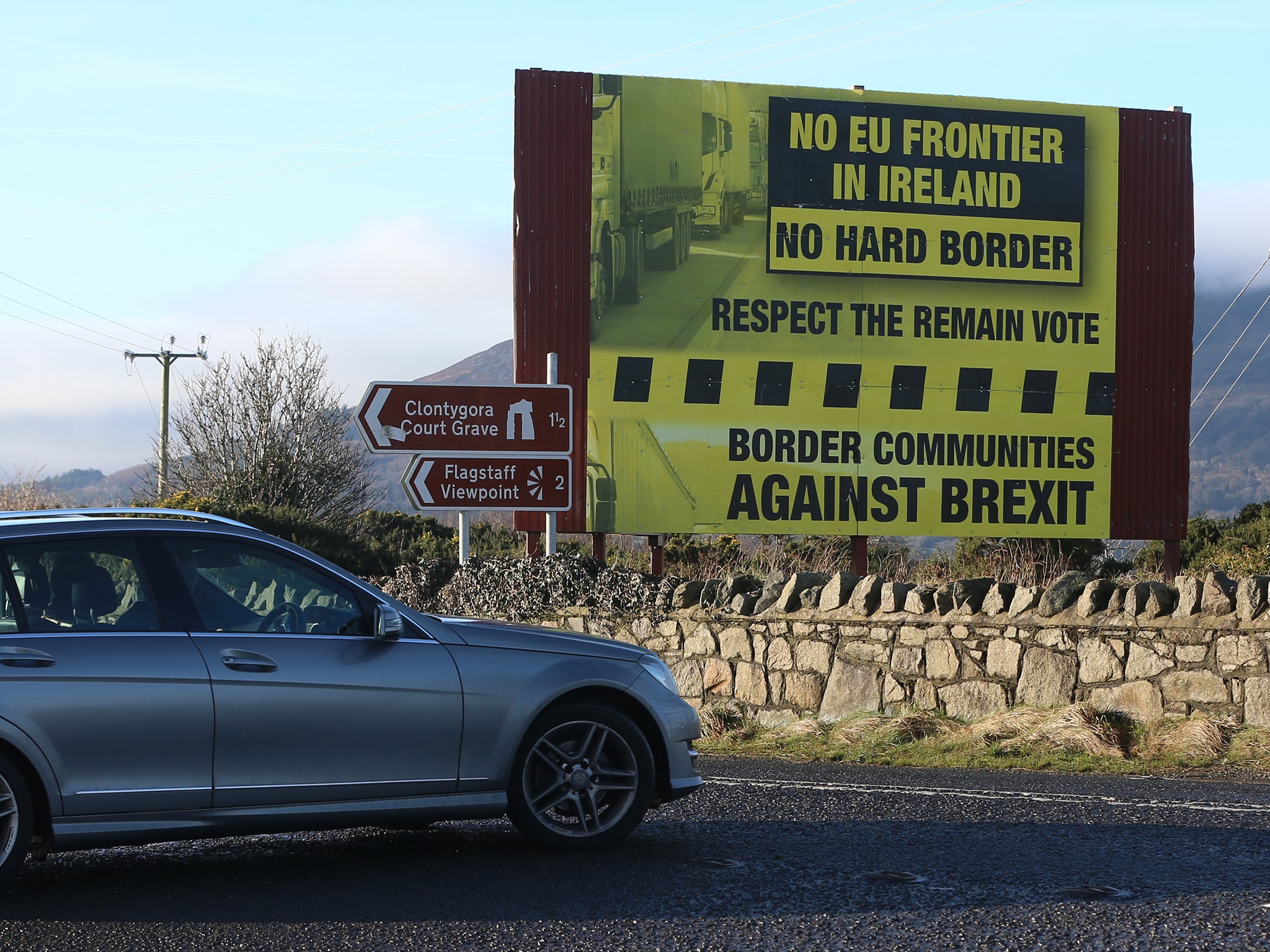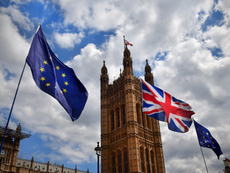Your support helps us to tell the story
This election is still a dead heat, according to most polls. In a fight with such wafer-thin margins, we need reporters on the ground talking to the people Trump and Harris are courting. Your support allows us to keep sending journalists to the story.
The Independent is trusted by 27 million Americans from across the entire political spectrum every month. Unlike many other quality news outlets, we choose not to lock you out of our reporting and analysis with paywalls. But quality journalism must still be paid for.
Help us keep bring these critical stories to light. Your support makes all the difference.
While Britain left the EU at the beginning of this year, little has changed thus far thanks to the ongoing Brexit transition period.
That period comes to an end on 31 December and there will then be a new relationship with the EU. A big part of that will be how Northern Ireland is affected.
Northern Ireland will remain part of the United Kingdom politically, at least until a vote on uniting Ireland is held. Some have suggested Brexit could accelerate the coming of such a "border poll".
This is because Northern Ireland voted strongly to remain in the EU, and is being taken out of the bloc against its population’s will.
But at this point, this is just speculation. For now, thanks to Brexit, there will be some immediate changes to the territory's economic relationship with rest of the UK.
After months of wrangling on what ended up being the most contentious issue of talks, both sides negotiated an agreement to make sure no hard border or associated infrastructure appears on the frontier between Northern Ireland and the Republic of Ireland.
This was to comply with the letter and spirit of Good Friday Agreement. The argument for keeping the border on the island of Ireland open was that its reemergence could inflame political tensions, and that any physical manifestation of it could act as a magnet for violence. It would also be virtually impossible to police due to it having countless informal crossing points.
Repeated British proposals to solve the issue using technology ended up coming to nothing: in the end, the price of an open border being compatible with Britain leaving the single market and customs union was new controls on trade between Northern Ireland and Great Britain – the rest of the United Kingdom. These "east-west" controls contrast with the "north-south" controls that the agreement sought to avoid.
Some have described the new arrangement as a “sea border”, but it won’t mean you’ll need a passport to cross. The main people who will see a change will be those exporting and importing goods in Northern Ireland.
The exact nature of the east-west controls that Britain signed up to is disputed by the UK and EU, but they both accept there will be some.
What we know for sure is the UK will be imposing some controls on goods that come from Great Britain to Northern Ireland. There will be extra paperwork and spot checks. Some companies have said this could mean they stop exporting products to Northern Ireland.
There are also likely to be controls on goods in the opposite direction, notably "exit summary declarations". The UK says these shouldn't be necessary, but they are in the EU customs code, which Boris Johnson agreed to implement.
Despite time being short, both sides are still negotiating on the exact implementation of the deal, so businesses still don't know what they'll need to be doing in a month's time.
Subscribe to Independent Premium to bookmark this article
Want to bookmark your favourite articles and stories to read or reference later? Start your Independent Premium subscription today.


Join our commenting forum
Join thought-provoking conversations, follow other Independent readers and see their replies
Comments